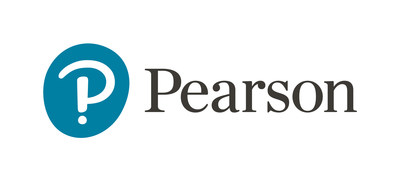New Pearson research shows Generative AI could help US workers save 78 million hours a week by 2026
Rhea-AI Summary
Pearson's latest research, part of their Skills Outlook series, reveals that Generative AI could help US workers save 78 million hours per week by 2026. The study, titled 'Reclaim the Clock: How Generative AI Can Power People at Work', identifies the top 10 job tasks where AI can save the most time, such as maintaining health records and developing educational programs. The research covers five countries: Australia, Brazil, India, UK, and US. Pearson's workforce planning platform highlights that AI can effectively support tasks like data collection and maintaining records. By augmenting routine tasks with AI, companies can allow employees to focus on high-value activities like strategic thinking and collaboration. The study emphasizes the need for employers to integrate AI responsibly and provide adequate training and support for employees.
Positive
- Generative AI can save US workers 78 million hours per week by 2026.
- Top tasks with significant time savings include maintaining health records (3.57 million hours saved) and developing educational programs (2.95 million hours saved).
- Pearson's workforce planning platform effectively identifies tasks where generative AI can be most beneficial.
- The study covers multiple countries, providing a broad perspective on AI's potential impact.
- AI augmentation can lead to a better work-life balance by allowing workers to focus on high-value tasks.
- Potential for increased productivity and reduced burnout among employees.
Negative
- The need for substantial investment in AI integration and employee training could pose financial challenges for companies.
- Potential job displacement concerns due to increased AI adoption might affect workforce stability.
- Reliance on AI for routine tasks may lead to skills atrophy in those areas among employees.
News Market Reaction
On the day this news was published, PSO declined 0.08%, reflecting a mild negative market reaction.
Data tracked by StockTitan Argus on the day of publication.
The latest installment of Pearson's Skills Outlook series, 'Reclaim the Clock: How Generative AI Can Power People at Work' - looks ahead to 2026 and identifies the top 10 job tasks with the most time saved by using the technology, in five countries (
Pearson's workforce planning platform, powered by generative AI, finds that the work Gen AI can most effectively support is focused on tasks related to maintaining records, data collection, or researching and compiling information for others.
The ten work tasks with most hours saved by Gen AI by 2026 in the US are:
- Maintain health or medical records (3,568,000 hrs per week)
- Maintain current knowledge in area of expertise (3,132,000 hrs)
- Develop educational programs, plans or procedures (2,946,000 hrs)
- Maintain operational records (2,032,000 hrs)
- Present research or technical information (1,782,000 hrs)
- Develop safety standards, policies, or procedures (1,696,000 hrs)
- Assess student capabilities, needs, or performance (1,663,000 hrs)
- Prepare legal or regulatory documents (1,638,000 hrs)
- Collect data about consumer needs or opinions (1,607,000 hrs)
- Prepare informational or instructional materials (1,585,000 hrs)
By augmenting basic tasks with generative AI, companies and their workers can reallocate time to focus on the high value work that humans do best: strategic thinking, collaboration, caring for others, decision making, innovation, problem solving, empathy, leadership.
At an individual level, even small amounts of time saved with generative AI can help people feel more in control of their job and achieve a better work life balance.
Oliver Latham, VP of Strategy and Growth for Pearson Workforce Skills, said:
"In nearly every workplace, people spend their day on common, time-consuming tasks that eat away at productivity or their work-life balance. If those tasks could be augmented with generative AI, employers and their workers could reallocate time to the things that needs a more human touch and mean more to their customers. Employers should consider how to incorporate this new technology into their teams, and redesign roles to free people up to focus on more valuable, human tasks. They should also consider the need for training and support for employees, so they can use it effectively and responsibly."
At Pearson we believe that the future of work can be one where people and Gen AI can collaborate by using AI as a tool to enhance human potential. For this study, Pearson used census and other workforce datasets to create a single view of the current workforce in the US,
Pearson looked at hours currently spent, countrywide, in the US on work tasks each week, and then calculated what this would be in three years' time as Gen AI technology is adopted into the workplace. We then identified the tasks which would have the greatest hours reduced by the technology (specifically LLM Chatbots and AI Text-to-Visual Media Generators).
About Pearson
At Pearson, our purpose is simple: to add life to a lifetime of learning. We believe that every learning opportunity is a chance for a personal breakthrough. That's why our c. 18,000 Pearson employees are committed to creating vibrant and enriching learning experiences designed for real-life impact. We are the world's leading learning company, serving customers in nearly 200 countries with digital content, assessments, qualifications, and data. For us, learning isn't just what we do. It's who we are. Visit us at pearsonplc.com.
Media contacts
![]() View original content to download multimedia:https://www.prnewswire.com/news-releases/new-pearson-research-shows-generative-ai-could-help-us-workers-save-78-million-hours-a-week-by-2026-302152010.html
View original content to download multimedia:https://www.prnewswire.com/news-releases/new-pearson-research-shows-generative-ai-could-help-us-workers-save-78-million-hours-a-week-by-2026-302152010.html
SOURCE Pearson








